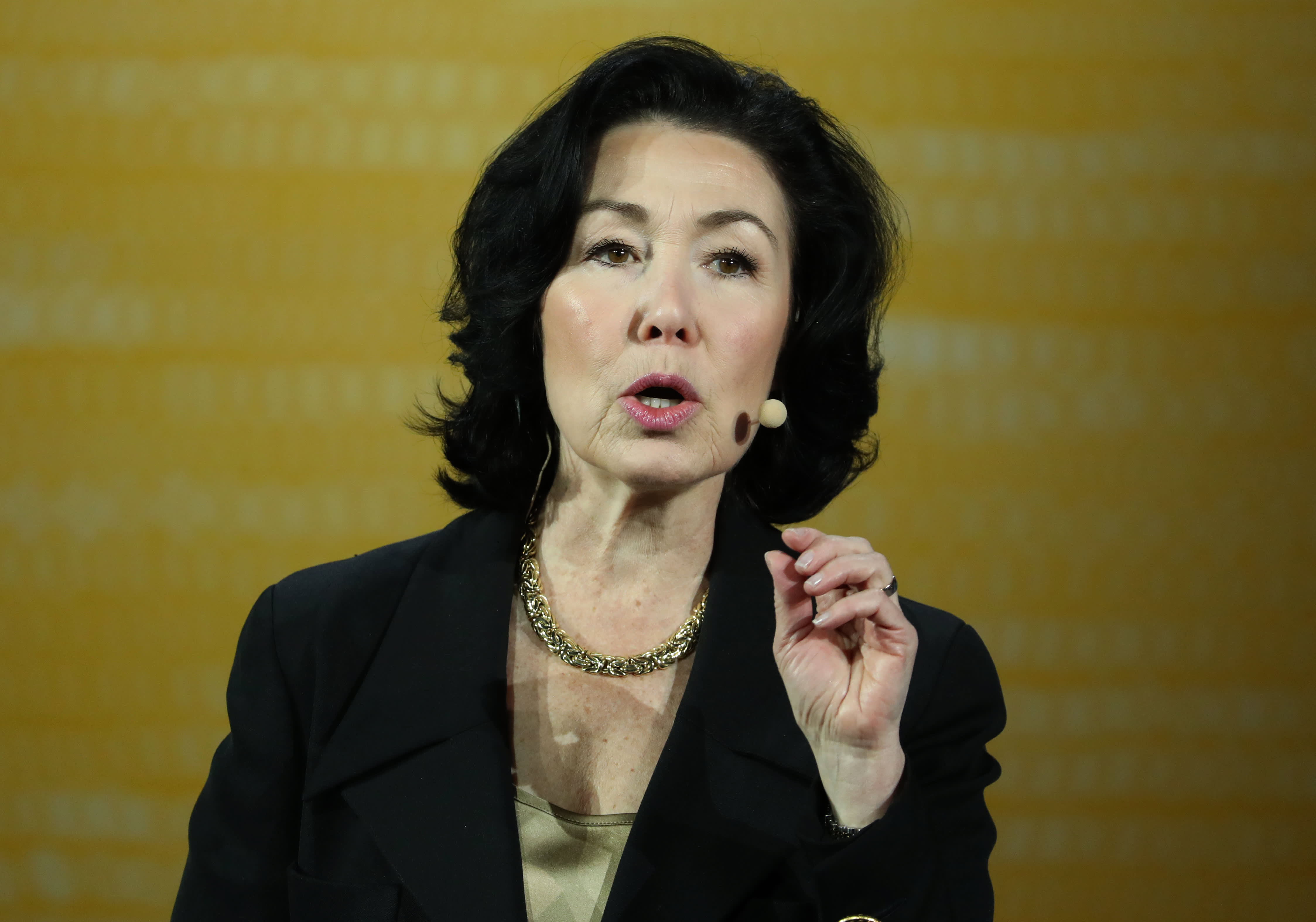
Oracle CEO Safra Catz delivers a keynote address during the 2019 Oracle OpenWorld on September 17, 2019 in San Francisco, California. Oracle CEO Safra Catz kicked off day two of the 2019 Oracle OpenWorld with a keynote address. The annual convention runs through September 19.
Justin Sullivan | Getty Images
Oracle shares moved 6% lower in extended trading on Wednesday after the enterprise software maker announced lower-than-expected quarterly earnings guidance and said it was raising its quarterly dividend to 32 cents per share from 24 cents per share.
Here’s how the company did:
- Earnings: $1.16 per share, adjusted, vs. $1.11 per share as expected by analysts, according to Refinitiv.
- Revenue: $10.09 billion, vs. $10.07 billion as expected by analysts, according to Refinitiv.
Safra Catz, Oracle’s CEO, told analysts on a conference call that she expects $1.20 to $1.24 in adjusted earnings per share and 5% to 7% revenue growth in the fiscal fourth quarter. Analysts polled by Refinitiv had expected $1.28 in adjusted earnings per share and the equivalent of 4% revenue growth.
Oracle’s revenue increased by 3% on an annualized basis in the fiscal third quarter, which ended on Feb. 28, according to a statement. Revenue grew nearly 2% in the prior quarter.
The top business segment at Oracle, cloud services and license support, delivered $7.25 billion in revenue, up 5% year over year in the quarter and slightly lower than the FactSet consensus estimate of $7.28 billion.
Oracle’s cloud license and on-premises license revenue totaled $1.28 billion, which was up 4% and above the $1.21 billion FactSet consensus. The company reported $820 million in hardware revenue, down 4% and just under the $843 million FactSet consensus.
Catz said the company saw over $2 billion in infrastructure cloud services on an annualized basis, and that in the current quarter it will invest to prepare for an increase in cloud consumption and revenue in the next fiscal year.
Larry Ellison, Oracle’s co-founder, chairman and technology chief, said the company would show gains from database software in the 2022 fiscal year, which starts in June.
“I’m not really ready to disclose our plans as to why I think it’s going to suddenly spike but we expect very, very rapid database growth next year,” he said. Databases remain a key source of revenue for Oracle.
In the fiscal third quarter Oracle announced the availability of version 21c of its database software as a cloud service and introduced a portable ruggedized server for running cloud workloads.
Last week Barclays analysts led by Raimo Lenschow raised their rating on Oracle stock to the equivalent of buy from the equivalent of hold, citing their belief that cloud revenue growth would accelerate. “We expect shares to re-rate, especially as investor appetite for value names and cash flow growth stories continues to improve in a higher yield environment coming out of the pandemic,” they wrote.
Excluding the after-hours move, Oracle stock has risen about 12% since the start of 2021, while the S&P 500 index is up 4% over the same period. The stock had run up in February as some investors considered the potential for growth from cloud services. In the fiscal third quarter Oracle’s capital expenditures came out to $1.42 billion, up 25%, while one of Oracle’s cloud competitors, Microsoft, had $5.4 billion in fourth-quarter capital expenditures, up 20%.
Oracle last increased its dividend in 2019, when it rose 26%, compared with the 33% increase announced on Wednesday.
WATCH: Here’s how other Big Tech giants did after founders stepped down as CEO



